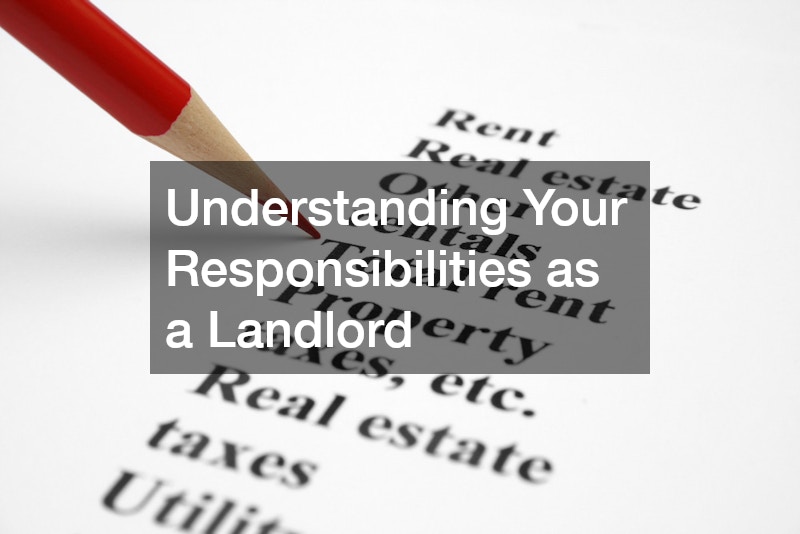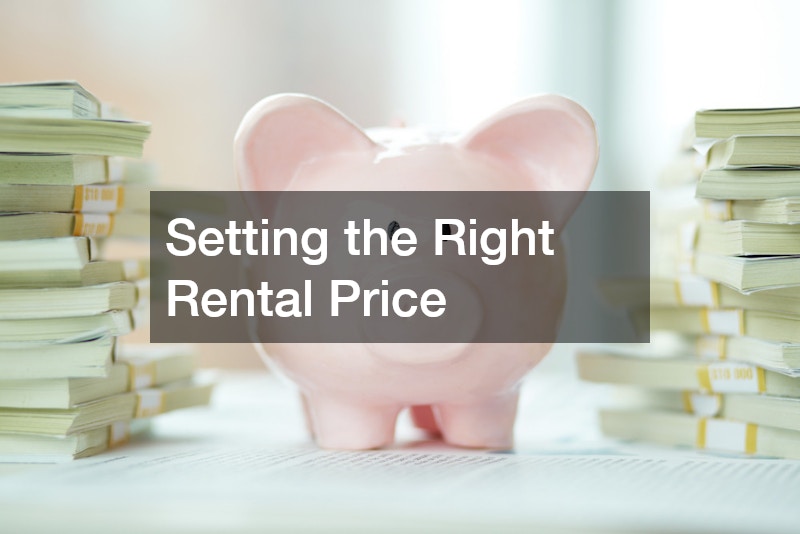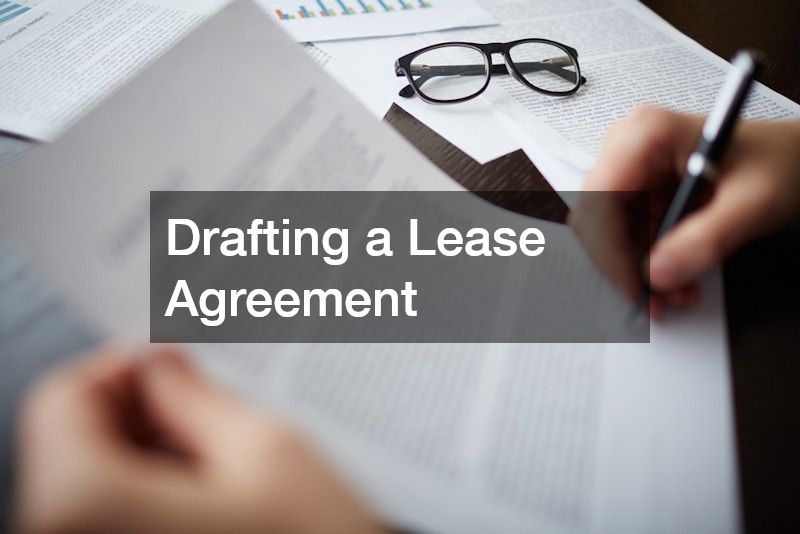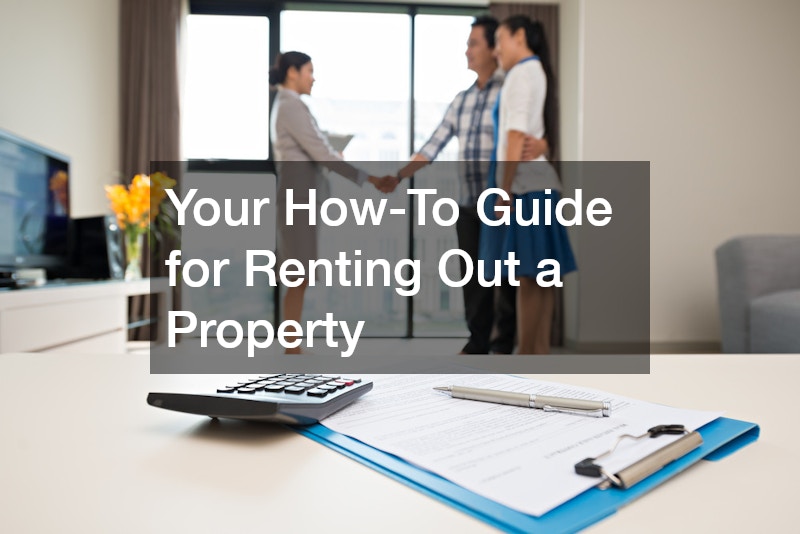Renting out a property can be an exciting opportunity for homeowners looking to diversify their income sources, but it also comes with a plethora of responsibilities and challenges. If you’re considering this step or are already on your way, it’s essential to have a clear and comprehensive checklist to ensure all aspects of the process are effectively managed. This article will guide you through everything you need to know when renting out a property, touching on vital topics maintenance to legal considerations.
When renting out a property, understanding the local rental market is crucial. This involves knowing what comparable properties charge for rent, understanding tenant demographics, and being aware of local laws regarding landlord responsibilities. With so many factors to consider, this ultimate checklist will serve as a helpful outline to ensure nothing is overlooked during your journey of renting out a property.
Moreover, one of the key benefits of successfully renting out a property is the potential for significant financial gain. However, navigating the complexities of the rental market requires thorough preparation and insight into various aspects such as property maintenance, tenant relations, and insurance requirements. This comprehensive guide promises to envelop you with the knowledge you need to maximize your rental experience and streamline the process of renting out a property.

Understanding Your Responsibilities as a Landlord
Renting out a property transforms you into a landlord with specific responsibilities that extend beyond just collecting rent. You need to ensure that the property is habitable and meets all local safety standards, which can involve regular maintenance and repairs. For instance, when issues arise requiring the expertise of a plumbing service or roofing company, timely intervention is necessary to uphold tenant satisfaction and avoid further complications.
Familiarizing yourself with local and state laws governing rental properties is essential. Regulations concerning tenant rights, eviction processes, and property inspection agreements are critical to maintaining a lawful relationship with your tenants. Noncompliance could result in legal action that might complicate your rental endeavors, making education about these regulations paramount when renting out a property.
You should also consider hiring local property management companies if you’re not able to dedicate sufficient time to manage everything yourself. They can help with everything advertising the property and screening tenants to handling repairs and maintaining compliance with rental laws. This can be a wise investment if you’re looking to make renting out a property a more passive income source.
A clear and well-drafted lease agreement is another crucial aspect of being a responsible landlord. This document should outline the terms of the rental, including rent amounts, due dates, security deposit details, maintenance responsibilities, and rules regarding property use. A comprehensive lease helps prevent misunderstandings and protects both you and your tenants in case of disputes. Additionally, establishing open communication with tenants and addressing their concerns promptly fosters a positive rental experience, reducing tenant turnover and ensuring a stable rental income.
Preparing Your Property for Rent
Before you start showing your property to potential tenants, it’s important to make it appealing and ready for habitation. This can include deep cleaning, freshly painting walls, or even engaging luxury home remodeling services to update the space. The goal here is to ensure that your property stands out in the competitive rental market, leading to quicker occupancy and higher rental rates.
Ensuring all appliances, including the heating and cooling systems, are in excellent working condition is vital. If your air conditioning unit is outdated or malfunctioning, consider seeking ac replacement services to install a more efficient system. A well-functioning AC can significantly improve tenant satisfaction during the hot months, hence aiding in tenant retention.
Additionally, as part of your property preparation, don’t overlook outdoor areas. Hiring residential exterior contractors can help improve curb appeal – this can include landscaping, painting, and ensuring that any outdoor amenities are functional. When potential tenants arrive at a well-maintained exterior, they might be more inclined to sign a lease when renting out a property.

Setting the Right Rental Price
One of the most critical decisions you’ll make when renting out a property is setting the right rental price. Research comparable rental properties in your area to gauge what landlords are charging for similar units. Websites and local listings can provide invaluable insight into market rates, ensuring you don’t undervalue your property or scare away potential tenants with a price that’s too high.
It’s also wise to account for additional costs associated with property management and maintenance to ensure your rental rate covers all expenses. Regular maintenance, property taxes, and insurance are all factors that will impact your bottom line. Always remember a competitive price will attract more tenants, reducing vacancy periods and resulting in more consistent revenue renting out a property.
Consider establishing clear terms for rent increases as well. Make sure your rental agreement includes stipulations regarding how and when you might raise monthly rent. Transparency in these arrangements not only builds trust with tenants but also protects your income as you strive to keep up with market trends.
Additionally, offering incentives can be an effective strategy to attract tenants while maintaining a competitive rental price. Discounts on the first month’s rent, flexible lease terms, or including certain utilities in the rental price can make your property stand out in a crowded market. These perks can help you secure reliable tenants more quickly, reducing the risk of prolonged vacancies. However, ensure that any incentives you offer align with your overall financial goals and do not compromise your profitability in the long run.
Tenant Screening Process
Having a thorough tenant screening process is essential when renting out a property. Collecting applications, conducting background checks, and reviewing rental history will provide insight into each applicant’s reliability. This practice not only helps you choose trustworthy tenants but also minimizes potential issues down the line, such as late payments or property damage.
It’s important to have a standardized application form and process to ensure fairness and compliance with anti-discrimination laws. This standardized approach can streamline your screening process, allowing you to efficiently assess applicants. Remember, finding the right tenant can lead to a more profitable outcome when renting out a property.
During the screening process, also consider verifying income and employment stability, as these factors are indicative of a tenant’s financial responsibility. Confirming that they can reliably cover rent expenses reinforces your confidence in choosing the right candidate. Ultimately, a good tenant-landlord relationship is key for maintaining long-term rental success.

Drafting a Lease Agreement
A well-drafted lease agreement is crucial to protecting your interests when renting out a property. The lease should clearly detail the agreed-upon terms, including rental price, payment due date, and the duration of the lease. Additionally, outline responsibilities for maintenance, use of the property, and implications for damages or breaches of contract.
Make sure to consult with a legal professional to ensure that your lease agreement complies with state or local laws. Not adhering to legalities could put you at risk for tenant disputes or could nullify your lease in a legal context. Moreover, having a legally sound lease agreement can be an excellent protective measure for landlords when renting out a property.
Regularly reviewing and updating your lease provisions according to changes in laws or your rental philosophy can help maintain its relevance and efficacy. A clear lease agreement sets the foundation for a successful landlord-tenant relationship, ensuring both parties understand their rights and responsibilities. This transparent communication can set the tone for a harmonious renting experience.
Including specific clauses regarding security deposits, pet policies, and subletting can further safeguard your property and prevent potential conflicts. Clearly outlining the conditions under which a security deposit may be withheld, whether pets are allowed (and any associated fees or restrictions), and whether tenants can sublet the unit ensures there are no ambiguities. Additionally, specifying rules on property modifications, such as painting or installing fixtures, can help maintain the integrity of your rental. By addressing these details upfront, you minimize misunderstandings and create a smoother rental experience for both you and your tenants.
Handling Financial Considerations
Financial considerations are paramount when renting out a property. You’ll need to determine how you’ll handle payments, whether through online platforms, checks, or direct deposits. Setting up an efficient payment system can minimize complications and streamline the financial aspects of your rental business.
Engaging with a homeowners insurance company for accurate coverage is critical to protect your investment. A well-rounded insurance plan will safeguard against potential liabilities and property damages, thus providing peace of mind. Planning for unexpected expenses, such as emergency repairs or vacancies, will also help maintain financial stability when renting out a property.
Don’t overlook the importance of tracking your income and expenses for tax purposes. Consider consulting with an accountant familiar with rental properties to help you maximize deductions and ensure accuracy on tax filings. By addressing these financial aspects proactively, you can better manage your cash flow and overall profitability.

Maintenance and Property Care
Regular maintenance is vital for preserving the value of your rental property. Create a maintenance schedule to routinely check important systems and ensure everything is functioning properly. This can include tasks such as checking the HVAC system, conducting routine inspections, and arranging for plumbing service or AC install when necessary.
It’s not uncommon for landlords to miss essential upkeep, leading to higher costs and tenant dissatisfaction. Establish a reliable network of contractors, including a roofing company or plumbing service, to assist with repairs when the need arises. Promptly addressing maintenance issues not only enhances tenant satisfaction but also protects the property’s long-term value when renting out a property.
Additionally, if your property has a septic system, plan to pump out septic tank or cesspools periodically to maintain functionality. Regular septic maintenance can avert costly emergencies and maintain hygiene at your rental property. A proactive approach to property care will lead to successful renting and less hassle for both you and your tenants.
Encouraging tenants to promptly report maintenance issues is also essential for preventing minor problems that could turn into costly repairs. Establishing a clear and simple process for submitting maintenance requests ensures that issues are addressed in a timely manner. Additionally, setting expectations for tenant responsibilities, such as replacing air filters or keeping gutters clear, can help maintain the property’s condition. Open communication and a proactive approach to maintenance create a positive rental experience while protecting your investment.
Effective Communication with Tenants
Open communication is essential for a successful landlord-tenant relationship. Regularly updating your tenants about property updates, maintenance schedules, or upcoming policies helps create trust and fosters a positive environment. Being accessible and responsive to tenant inquiries can also prevent misunderstandings and reduce potential conflicts when renting out a property.
Establish clear guidelines on how tenants can reach you – whether via phone, email, or a property management platform. This allows tenants to report issues quickly, ensuring you can address them promptly. Clear communication channels are paramount in promoting tenant satisfaction and long-term retention.
Consider scheduling periodic check-ins to discuss any needs your tenants might have or any concerns regarding the property. This proactive approach will help you gauge tenant satisfaction levels and make improvements as necessary. Ultimately, fostering a respectful and open dialogue can positively impact your overall rental experience.
Additionally, setting expectations for response times and outlining emergency procedures can further streamline communication. Let tenants know how quickly they can expect a reply for non-urgent matters and provide clear instructions for handling urgent maintenance issues. Having a well-defined communication protocol reassures tenants that their concerns will be addressed efficiently, enhancing their rental experience and increasing the likelihood of lease renewals. Effective communication not only strengthens landlord-tenant relationships but also contributes to a more stable and well-managed rental property.
Preparing for Tenant Turnover
Tenant turnover is an inevitable part of renting out a property, so being prepared can ease transitions. Keep track of lease expiration dates, and begin preparing marketing efforts to attract new tenants well in advance. This proactive approach can significantly reduce vacancy periods, allowing for more consistent income.
Before new tenants move in, conduct a thorough cleaning and inspection of the property. If required, consider using storage services to help manage your items during this process, ensuring the property remains presentable. Making sure everything is in working order and aesthetically pleasing will improve your chances of attracting quality tenants quickly.
Just as with the initial tenant screening process, you’ll want to apply the same level of scrutiny when choosing new tenants. Continuously refine your tenant screening process based on your experiences with past tenants to improve future choices. A smooth turnover process not only lowers loss in rental income but also helps build a stronger rental portfolio when renting out a property.
Additionally, take the opportunity to make any necessary upgrades or improvements between tenants to enhance the property’s appeal. Simple updates like fresh paint, modern fixtures, or upgraded appliances can make a significant difference in attracting high-quality renters and potentially justify a higher rental price. Addressing minor repairs before new tenants move in also prevents complaints down the line and sets a positive tone for the landlord-tenant relationship. Investing in the property’s upkeep during turnovers ensures a smoother transition and long-term success in renting out your home.
Renting out a property can provide a lucrative source of income if handled correctly. The comprehensive checklist provided in this article covers key aspects of property preparation, tenant screening, legal obligations, and maintenance necessities. In emphasizing the importance of being proactive, prepared, and well-informed, you can navigate the complexities of the rental market with increased confidence.
Remember, balancing various responsibilities as a landlord requires significant commitment and readiness to address both expected and unexpected situations. Whether you choose to handle management tasks on your own or enlist the assistance of local property management companies, staying organized and focused on tenants’ needs will lead to success. With a solid understanding of your responsibilities and a proper strategy, renting out a property can be a rewarding and profitable venture.
Finally, stay current with market trends, local regulations, and tenant expectations, as these will continue to evolve over time. Leveraging resources such as homeowners insurance companies, quality maintenance providers, and reliable contractors can serve as valuable components of your rental strategy. Ultimately, the journey of renting out a property is not just about financial gain; it’s about creating a space in which tenants feel valued and at home.



